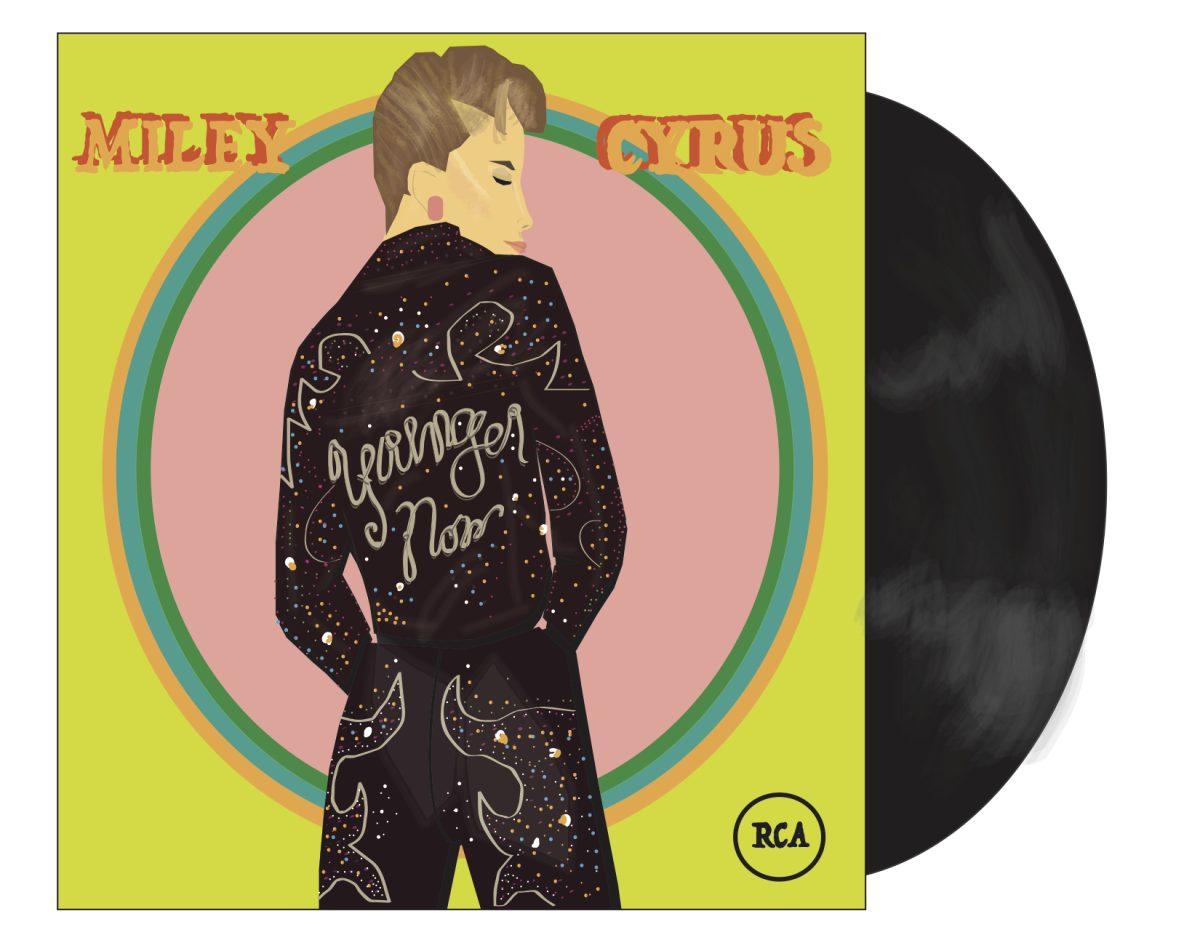Miley Cyrus’ “Younger Now” reflects a seasoned, wiser performer.
___________________________________________________________________________________
Miley Cyrus, in accompaniment with RCA Records, released her sixth studio album entitled “Younger Now” on Sept. 29 and it took listeners for a turn. Unlike with much of her music since her break away from the “good girl” or “Hannah Montana” image, gone are the elaborate, theatrical stunts including twerking and riding wrecking balls. This album connects back to Cyrus’ Tennessee roots with a heavy focus on acoustic instruments and emphasis on her southern twang.
Cyrus teased listeners and long-time fans with pre-released singles, which shared none of the hip-hop sounds and drug-centered messages both her “Bangerz” and “Miley Cyrus and Her Dead Petz” works contained, but rather signaled a new focus on softer, more lyrically driven ballads.
At first glance, the album seems to be an apology for the last four years of her career. However, as I listened more carefully, I found it evident that this Cyrus is not a complete regression back to the teenager doubling as a pop star, but rather a third revolution; a combination of all the personalities that exist within her.
The pre-released singles are the first two songs of the album, “Younger Now” and “Malibu,” respectively. “Younger Now” is reflective of Cyrus’ past and takes the listener through her overall change throughout her career. The tune also offers relatable lyrics to teens and adults who have gone through similar changes. Although much of her album is packed with lyrics that listeners seem to enjoy, “Malibu,” a catchy sing-along, lacks emotionally relevant lyrics which the other 10 songs on the album, for the most part, contain.
The third track on the album, “Rainbowland” definitely extends Cyrus’ album to a wider audience as she collaborates with her godmother, country superstar Dolly Parton. Their voices combine in perfect harmony throughout the piece.
Directly following each other, the ballads “Miss You So Much” and “I Would Die For You” find Cyrus approaching real honesty and vulnerability in her lyrics, something listeners have never seen in any of her previous five albums. These are most definitely the record’s best vocal performances as well. These love-focused hits are most likely based on her relationship with actor Liam Hemsworth, someone she has been on and off with since their roles in the 2010 film “The Last Song.”
In complete opposition, “Week Without You,” seems to be based in part on her past unsuccessful romances or periods when she was off with Hemsworth, with lines like “I know that I gave you my heart/ But you stomped it to the ground.”
To continue the theme of vulnerability, Cyrus reveals details of one of her romances with her song “Thinkin” where she suggests she is weary to trust her partner, but perhaps she is overthinking the situation. She is also thinking in the following track “Bad Mood” with lines like “I always wake up in a bad mood/I can never fall asleep/I’m always thinkin’ ’bout you.”
Perhaps Cyrus is speaking about the same person she is describing in the previous song when she delivers lyrics like “Ever since the day that I met you / I knew you weren’t the one,” in her short and upbeat tune named “Love Someone.”
In “She’s Not Him,” Cyrus reflects on bisexuality as she sings about loving both women and men. Finally, the last track of the album, “Inspired,” leaves the listener feeling not-so-ironically inspired, with words of wisdom and positivity.
Cyrus truly demonstrates her chameleon ways as an artist throughout this album and sends positive messages to her listeners through an incorporation of lines such as “change is a thing you can count on,” and “I’m not afraid of who I used to be,” and encourages her audience to share these sentiments.











































